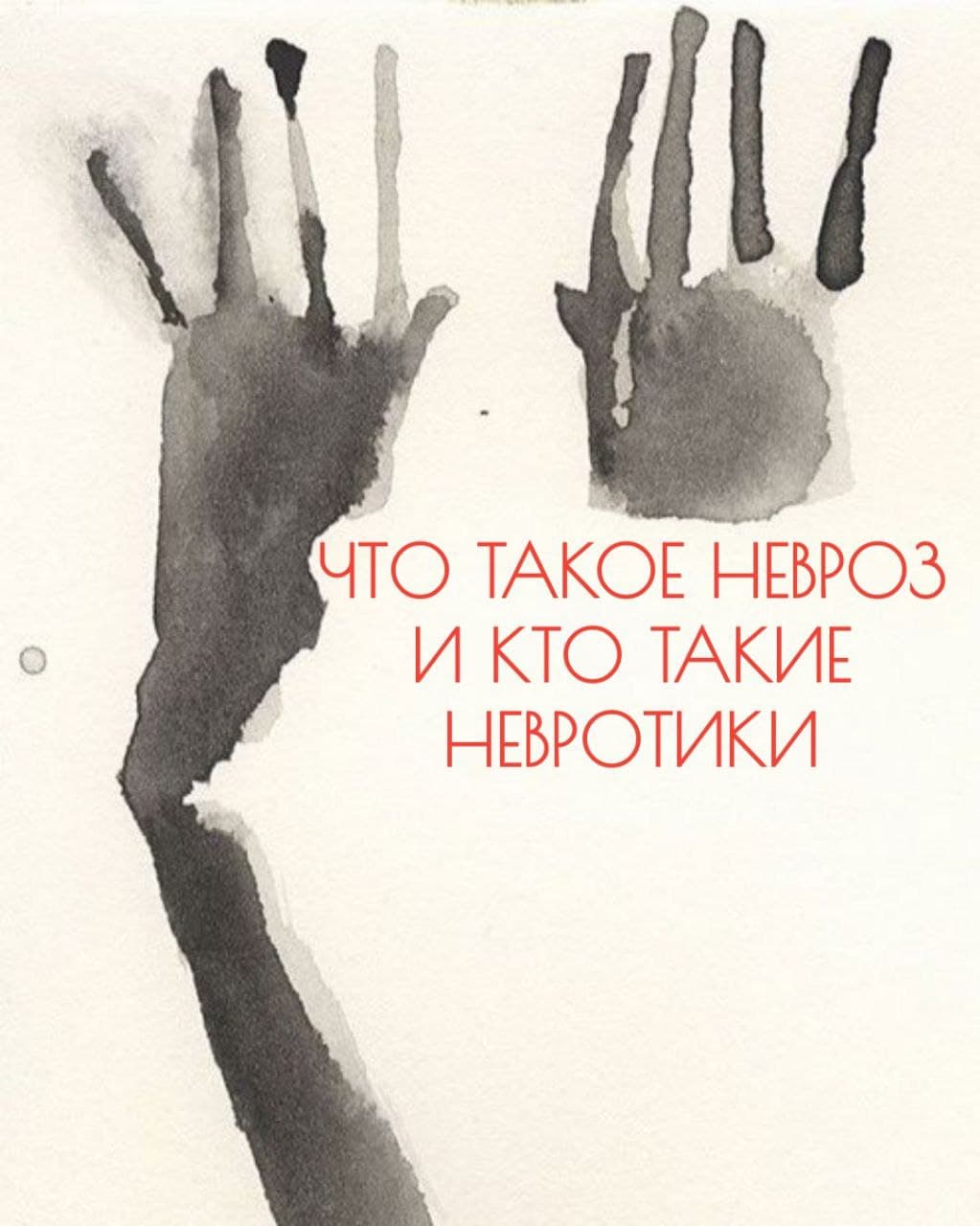
@omprograms
Uncertainty is almost inevitable and, in a way, even a familiar part of our lives. But when the level of uncertainty is high, it can affect a whole range of important aspects of our lives.

We met Vyacheslav Moskvichev, a psychologist, family psychotherapist, and narrative practitioner, on his birthday. In addition to the interview, Vyacheslav was going to give a free three-hour seminar on narrative practice. Such a gift to others on his birthday. Vyacheslav resembles Holden Caulfield from "Catcher in the Rye", or N.N. Miklukho-Maclay when he started anthropology and ethnography. Traveling with our hero along some of the roads of his professional and non-professional life, stopping briefly in the most unexpected places, from aeronautical engineering or the navy to a shelter for teenage children, from Bali to Australia, we got acquainted with some of Vyacheslav's ideas about narrative therapy and life in general.
O : Tell us how you came to Narrative as a practice? Why did you choose this particular direction?
V: I did not come to narrative practice right away. After university, it became clear that in order to work, you need something other than a psychology degree. The main thing we were given at the faculty was diagnosis, such a distribution of people into cells. But how to establish contact, what tools to use was not very clear. And the first thing I started with was psychodrama. I was fascinated by psychodrama, first of all, by the presenter. Elena Lopukhina charmed me at one of the conferences, where I came specifically to look for my approach. And I studied psychodrama for three years and I don't regret it. But I lacked an individual perspective. Psychodrama helps the individual person, sees their story as very individual. The family is practically ignored. And I was very interested in how to include the family.
S: Were you interested in working with families in systemic family therapy?
V: Well, when I became interested in it, by and large, we didn't have anything else besides systemic family work. It was also interesting to me in the context of working with children in an orphanage. It turned out that more than 90% of children in orphanages, boarding schools and shelters are children from families, they have living parents. And we started looking for an opportunity to work with families. So my next step was into family therapy. It was Alexander Chernikov's program at the Institute of Group and Family Psychotherapy. Before that, there were still books. Carl Whitaker made me fall in love with family therapy. He used to say, "I don't believe in people, I believe in families" - this way of looking at a person through the prism of the family. It was very interesting. But there was something missing. К тому же в этот момент я уже сделал следующий шаг - начал работать с семьями в кризисной ситуации, дети которых еще не попали в приюты. Прийти в такую семью с идеей о её дисфункциональности было достаточно нелепо. Как ты придешь в семью с такими идеями, так ты и уйдешь, никто никому не поможет. Поэтому, когда я встретился с такими конструктивистскими направлениями, как ориентированный на решение подход и нарративный подход в терапии, я сразу же проникся ими. Потому что главное определение нарративной практики – это не паталогизирующий, не обвиняющий подход к терапии, где нарративная практика просто отказывается от идеи нормирования, соответствия и отклонения от нормы.
O: Narrative practice turned out to be what you were looking for?
V: I have a feeling that if before, I was traveling in search of my land, now I have found it, and now I make sightseeing trips, but always coming back. I am very interested in finding other approaches, and I enjoy looking at other therapists. For example, not long ago I was just fascinated by the work of Bill O Henlon, one of Erickson's students. But he just goes into narrative practice only as a traveler from his own territory. Encountering each other's territory in this way, I think, is very important.
S: Can you name the characteristic differences of the narrative approach from other directions?
V: The world of narrative therapy subscribes to the notion that the notion of norms gets in the way of helping people. The idea of normalization contributes to the problem because when a person begins to evaluate himself or his relationships in terms of certain norms, he sees himself as falling outside of those norms, as failing, as inferior. This prevents him from leaning on some other possibilities that could be in his life.
О: What are the main goals of the narrative therapist?
S: Become the author of your own story....
V: Become the primary author because, from a narrative therapy perspective, a person can never be the sole author of their story.
S: Get editing rights..
V: And the rights of the editor-in-chief, who can also approve the editing of others. Other people (loved ones, professionals, colleagues, neighbors) try to sub-edit our lives by reporting on how well we conform to their notions of normality or desirability. Some people or stories we align with, some we don't, some are dangerous not to align with because they have more influence over our lives. Other stories, though, we like more. The challenge is to become more of the main author of your life and choose who will be co-authors. Narrative therapy has a metaphor of identity as a life club. We can't do our life alone. But we can revise the membership of our life club and alienate someone, perhaps even exclude someone, and invite someone in, make their participation more present.
О: How do client expectations affect your work? Is it important for you to clarify them?
V: I think this is a major part of our work. Usually people come in with a problem-rich story. But they often think it's some objective truth about their life, or their child, or their partner. And the first thing I do is I help people to separate the problem they're claiming from them and from people. If a person says, "my son has suddenly become lazy," I'll ask, "Does this laziness manifest itself in all areas of his life? Are there moments where laziness doesn't overwhelm him? Are there days when laziness, he doesn't succumb to laziness?". This opens up space to see that problems haven't taken over everything. And then we have the opportunity to see what the problems are hindering. If the problem didn't exist, how would your attitude, or your feeling, change? What would you be able to do that you can't do now? Having encountered the problem stories, I hypothesize that the problem stories themselves give us signs of what people prefer.
О: Can you give some of your own story as an example?
V: Well I have a lot of stories. There are stories of my becoming a psychologist - at one point I was sure that I would become an aviation engineer. I entered an aviation institute and studied for a year and a half, convinced that I could not become anything else but an engineer. At some point I recognized myself as not fitting that story and ended up serving three years in the Navy. This experience became, I would say, a pathway into psychology for me. My sister used to send me books on psychology. I probably had the richest library of sailors in the entire Northern Fleet. Everybody kept their discharge albums, but I kept my psychology books. Perhaps many years afterward, I would call that experience, intriguing, dramatic. There emerged an idea of things that are very important to me as a psychologist. For example, the notion of freedom - what is freedom, what is unfreedom, and what is choice, and what is lack of choice. But I certainly wouldn't want to repeat that experience ever again.
S: How important do you think extreme experiences or borderline traumatic experiences are to a person's development?
V: You know, it's hard for me to say. I went through the service and generally survived and became a man. Some would say it's because of the service. But the notion that you have to go through the service to become a man is not close to my heart. I have a son growing up. I hope he doesn't go into the service. I hope that when he reaches draft age, we will have a contract army.
S: There are traumatic experiences in everyone's life and, of course, ideally we would like to protect people so that they grow up in love and harmony. But still, strawberries grown in a greenhouse are more watery than those grown in the ground?
V: For me there is a very big difference between the ideas of difficulty as a problem and difficulty as violence. Man inevitably encounters problems. Man is born, he has to learn to breathe normally, then to walk, then to talk. Every time, if, he overcomes something, he meets with choices, with the agony of creation. Our life is the more diverse, the more it gives us these opportunities for development, choices and such difficulties. But at the same time, when they say that we need hothouse conditions... In my opinion, all mankind became mankind thanks to the fact that it built a hothouse, a hothouse of culture. And to say that now someone is in non-hothouse conditions....during even the toughest and most brutal crops is a definite hothouse.
Olga: Even at the orphanage you worked at?
V: Even there.
О: How long did you work at the shelter?
V: I worked there for 10 years.
О : It's such a slice of life. Why did you go there?
V: This story began before I became a psychologist. I first encountered orphanages when I was on a construction team. I was then still a student at the Aviation Institute. A lot of people lived in the Soviet Union and did not know about how many children we have in orphanages. But when you encounter it, it is impossible to forget about it. And when I came out of the service and entered the psychology department, I started looking for a job, and one of the offers I got quite quickly was to volunteer at an orphanage that had just appeared in Moscow. And I came to this orphanage as a volunteer, to see, to talk to the children, to do something with them. And, gradually, I became an employee. First as an observation orderly, then as an educator, and as my education progressed, I became a psychologist there.
There were many stories from my pre-narrative stage that greatly influenced my narrative practice. For example, when I, already as a psychologist, was writing a characterization on one of the children who was to go to an orphanage. He knew he was going to the orphanage, he knew I was writing the characterization. And at the moment when I was writing the characterization, he came into my office, and I quickly closed the characterization so that he would not see what I was writing. At that moment I felt very uncomfortable that I had done that.
S: Was it negative?
V: I didn't think I was writing negative...I thought it was objective. And, when it came out, I took it and reread it.....
S: Did his eyes look at those tapes?
V: I did my best... something I changed there. Then I invited him over, decided he had a right to know what he was going to go with. He read it. Something he didn't understand, something he didn't agree with, something we corrected together, something I explained to him. And it was the kind of first experience that I would call narrative, but I didn't know it yet. This willingness to present insider knowledge, to give those we help more representation - this, is a very important position in narrative practice. We should not speak for them, but with them, invite them to our conferences, give them representation and a chance to speak.
S: Are there stories that are coming into fashion? Can you identify the stories that people are coming up with now?
V: On the one hand, I assume that this is related to the personal characteristics of therapists, to the way they are positioned. I am positioned as a family therapist, as a specialist in working with adolescents, spouses and families with adolescents come to me. On the other hand, I have a sense that the topics, have started to change. Now there are fewer topics related to teenagers leaving home and more topics related to computer addiction. Not too long ago, there were a lot of inquiries related to the prospect of success. Now it is as if "success" has been replaced by "self-actualization". These are different things, although they are close to each other.
О: Is it still possible to identify the most popular stories?
V: I would distinguish between stories more personal and more social. There are big cultural stories. For example, I am a man or I am a woman, that kind of gender story. It starts to take shape now before birth, because most parents learn about their child's gender while they're still in the belly and they start to build that story by buying certain clothes, talking a certain way, and so on. And that's one of the problematic stories, because the normalization of what a real woman and a real man is is very powerful. And for many, it comes naturally because they conform well, but for some, it turns out to be more difficult. For example, for male psychologists, it's difficult to conform to both the idea of a real psychologist and a real man, because they diverge. A man should not express his feelings, but a psychologist should. A man should be silent and stern, and a psychologist should be friendly. Which one to choose here?
О: But these cultural paradigms shift over time. For example, "boys don't cry." When I was in kindergarten, it was just a completely ironclad rule, but now, of course, it's not.
V: James Bond has already cried. Can you imagine James Bond crying in the first episodes? It was impossible.
О: Are the stories that clients bring in changing? Maybe there are stories that are more common now or were common 10 years ago?
V: Of course, nowadays, history is very rapidly developing and changing. If we start with Soviet times, we can see that a huge number of stories have changed with the opposite sign. For example, the story of the good man in Soviet times is the story of the collectivist. It is a story of solidarity, a story of collective responsibility:
"One is zero, one is nonsense: One, even the most important, Can't lift a five-foot log, Much less a five-story house."
Individualism was considered a very negative quality. But since the moment when we entered a different phase of development, when we became closer to Western European ideas, when psychology entered more into our lives, the situation has changed. Now a healthy personality is understood as autonomous, individual, independent, not subject to group influence, and so on. And someone who falls very much into the collectivist view is more likely to be labeled as problematic, falling into confluence, dependency, and so on. Also the story of the role of the woman has changed a lot.
О: What do these changes mean to you?
V: For me, it is liberation in many ways. If we talk about some ideal of narrative practice, it is a contribution to the diversity of the world: the more diverse the world is, the less it can be conformed to any norm, the better.
О: For you personally, or for you as a member of the Narrative School, is tolerance such an absolute value, "let all the flowers grow"?
V: The word tolerance is too political. But overall, perhaps yes. Narrative practice typically involves addressing people who find themselves in situations of marginalization and highlighting issues of social injustice. And ethics is not just about rules; it's more about taking responsibility for the consequences of what I do or say. One quote from a narrative practitioner: "It's important not only to think about what I say, to be accountable for what I say, but to be accountable for what the doing of what I say." If I say something, those words have consequences. Am I ready to take responsibility for the actions those words produce? From a narrative practice perspective, we create reality with our words. In this regard, not all ideas are equal. For example, ... if I have a non-violent idea and the other person has a violent idea.
S: Yes, like the idea of fascism. This flower, let it grow too?
V: In terms of narrative practice, it matters a great deal how much these ideas suppress others or not; how much space is left in the idea for other voices.
S: Speaking in terms of genre, in which genre are your clients' requests most often heard?
V: Requests are more in the genre of adventure or travel. And if we talk about what people come from, it's mostly melodrama or detective...I have horror, but fortunately very rarely. Still, people come with hope, and that hope is for some kind of journey. They come, among other things, to get out of this horror or melodrama or sometimes drama into some other space.
О: So you're expanding the client's repertoire?
V: I hope so. Because clients are looking for opportunities to expand their interaction repertoire. By the way, perhaps more often people come to me who appreciate a sense of humor. I enjoy telling stories while working, including funny ones. Taking difficulties too seriously strengthens them. One of Michael White's early articles on the narrative approach was titled "A Playful Way of Dealing with Serious Issues". I resonate with this style.
S: What genre do you live in most often?
V: Speaking of my genre, I would also classify myself as belonging to the genre of travel, the genre of adventure. I really enjoy offering people metaphors of traveling from the territory of problems to the territory of preferences. When I work, I observe which territories are occupied by problems and which ones are free, and what is happening on them, and how these territories can be expanded.
S: You often have the metaphor of Travel: "another land", "going somewhere", "developed lands" / "undeveloped theriories". It all has something to do with this kind of map metaphor, the space-time continuum. What does this language mean to you?
V: Michael White, saw this metaphor as the most appropriate for his therapy. And even the methods he offers to narrative practice he called maps (a map of conversation aimed at externalizing the problem, or a map of conversation aimed at recomposition), meaning that conversation helps the person to move from familiar and habitual experience, from familiar terrain to a place where it is possible to learn what is not yet known to the person. And the therapist acts as such a guide who can walk the map and ask questions, offer directions and open up possibilities, but he does not know where the person needs to go. He offers such a guide service on the journey of his life. The person himself does not know exactly where he would like to go, but he has some ideas... Perhaps he has seen these places somewhere, perhaps he has been there, but he does not know how to get there..... This language was close to me and very responsive when I met him.
S: How did your working metaphors benefit from your trip to Bali? It was a big trip, you lived away from Moscow for several months, right?
V: Somewhere around 2-3 months. We generally love to travel. Aside from a three-day trip to Hungary, my first international trip was to Australia for a narrative practice conference. And when I got there, I came up with this metaphor - "to look at my life from another perspective".
О: Upside down!
V: Yeah, yeah, yeah! They're the antipodes. There are people walking on their heads! And, here, it is winter there - here it is summer, there are other animals, there are other people, there is a funnel... the water swirls the other way - it is a completely different country! When you look at life from the other side, you can see its flow! What seemed self-evident ceases to be so, because it happens differently. And since then, I really, really love to travel and see. Bali is a special island for me too, with a different culture. There are much more traditional ideas there. But it's a very welcoming country with very different things that go without saying. And very different stories. When you immerse yourself in the contrast of other stories, you get a chance to see yourself differently and see what stories you are swimming in.
S: If you had the opportunity to choose any therapist, of any time, of any century including the classics, who would you want to be in therapy with?
V: I would probably be very interested in Milton Erickson's chair. Also, of course, Carl Rogers is very interesting. I'm curious to see how that, the client-centered approach is built from the inside out. Then there's Whitaker. I'm straight-up dreaming, but it's with my family, of course. I'm directly envisioning us at his place with the whole family we have now. I wonder if he'll want me to invite previous wives as well. From the way he wrote, he generally likes to gather unexpected company.
О: Are you ready to bring the whole company?
V: Well, I would try. I'd be thinking about how to write invitations to my colleagues, friends, family... And of course, Michael White, I'm straight up very eager. Michael White and Steve DeShazer, I guess, those are very important figures, too.
О: What would you go to Erickson with, if it's no secret?
V: Probably with something so unconscious, something I have the least control over. Probably with this kind of Facebook addiction, something like that....
О: Did you name it as one of the popular client requests these days?
V: Indeed. The Internet has greatly changed all of life: both demands and lifestyles. And, in my opinion, it has greatly influenced people's identity.
S: And do you think the Internet offers any new forms of psychotherapeutic exposure and contact?
V: On the one hand, yes. It has become very easy to create, for example, communities of support. Especially for marginalized people, when you realize that you are in the minority, but, in fact, there are thousands of people like you. On the other hand, of course, there are opportunities for traumatization. Ideas of privacy are being reconsidered. For example, it has become very difficult to respect the conventional psychoanalytic position of the closed screen for projections. Any public person, such as a psychotherapist, who publishes, becomes open. Even if he does not put out information about himself, there will be a huge amount of information about him, and the client can find it.
О: What personal experience has influenced you the most as a therapist?
V: If you talk about my position in counseling, I've taken a lot from social work, because social work addresses much more the idea of social justice and advocacy. Our psychotherapy often thinks that this is an issue that doesn't belong in therapy. And from my perspective and from the perspective of narrative therapists, when we just take a neutral stance, it's often an endorsement of the existing, often unjust state of affairs. If we want to be in an honest position, we need to talk about the fact that this problem here is not a problem of low self-esteem, it's a problem of poverty. And it's a problem of injustice to a woman, a mother of three children, who is not supported; it's not dependency or lack of responsibility for her life, it's the inability to be responsible for your life if you have three children and no support from the state and your husband. And those are honest positions. I think it's very important to voice them. It turns out to be important for people who now come for therapeutic help, including those who are quite well off. I realize that I can't change the structure of society or the social order. But the very recognition that this is really unfair, that you are really fighting social injustice, and we can look for other ways to respond to the problem, gives you a sense of greater resource and greater authorship and helps you to change your lives.
Questions asked by Olga Movchan, Svetlana Skarlosh

Fill out the form below, we will answer your question shortly!

Uncertainty is almost inevitable and, in a way, even a familiar part of our lives. But when the level of uncertainty is high, it can affect a whole range of important aspects of our lives.

WHAT PREVENTS A THERAPIST FROM BEING A THERAPIST?

Alarm levels. What is anxiety and how to deal with anxiety?

What is neurosis, and who are neurotics?